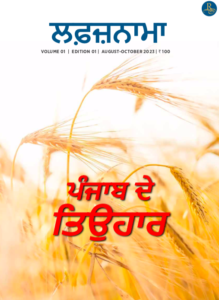TO ALL THE MEN WOMEN HAVE LOVED!

Once the world of fairy tales is over and the reality of the non-existence of Prince Charming dawns upon every girl, her heart desires for a more realistic, less formidable and somewhat dependable hero in her life. The journey inevitably begins with falling in love with the haughty yet irresistibly handsome Mr. Fitzwilliam Darcy from Jane Austen’s Pride and Prejudice. Deemed as the ‘archetype of the aloof romantic hero’ Darcy has ruled every girl’s heart since over two centuries and has been the prototype of most of the heroes of Mills and Boon series– tall, dark and handsome with a mysterious past.
Along the way came the likes of Heathcliff, the antihero from Emily Bronte’s Wuthering Heights who is consumed by an indescribable rage at not being allowed to marry Catherine Earnshaw, the love of his life. His desperate pleading to persuade Catherine, made every girl secretly pine for a passionate man like him,
“Be with me always—take any form—drive me mad! Only do not leave me in this abyss, where I cannot find you!”
And then there was Jay Gatsby, the hero of American author F. Scott Fitzgerald’s The Great Gatsby. The flashy, self-made millionaire who threw lavish parties for one and all in the hope that one day his beloved, Daisy Buchanan would honour him with a visit. A single line by the author made him the heartthrob of millions around the world,
“He looked at her the way all women want to be looked at by a man.”
Rhett Butler has certainly been one of the top contenders for the coveted position for all the passion he displayed to woo Scarlett O’Hara in Margaret Mitchell’s Gone with the Wind. Described as ‘smooth, witty and charmingly roguish’, his love for Scarlett knows no bounds and his obstinate proposal made every girl swoon,
“Say you’ll marry me when I come back or, before God, I won’t go. I’ll stay around here and play a guitar under your window every night…”
Of course there is the youthful and tragic Romeo Montague from Shakespeare’s Romeo and Juliet whose impish charm has not only tickled the heart of one but many a Juliet for the past several centuries and the untimely death of this character made him all the more immortal.
One character whose love and consistency as a lover has been overlooked by most, critics as well as readers, is the young hero Mirabell from William Congreve’s The Way of the World, deeply in love with Millament, the heroine of the play. The young man, a combination of virtues and vices, perhaps stands out among other fictional heroes, not only for his devotion towards his lady love but also for the reason he ascribes for loving her,
“…for I like her with all her faults; nay, like her for her faults.”
In a detailed explanation, Mirabell discloses to his friend Fainall, that his attempt to hate Millament fell short when he realized her “follies are so natural, or so artful, that they become her”. He confesses the fact that Millament was not a perfect human being and is full of frailties. Yet, he finds them so familiar and similar to his own that “in all probability in a little time longer I shall like ’em as well.” That, by and large, sums up the premise of ‘true love’. We all wish for that perfect lover, beloved or life partner that is the epitome of all the desirable characters while ignoring the fact that no man or woman is perfect. We want the other person to love us unconditionally despite our failings while we leave no room for other’s frailties. That is where Mirabell comes to our rescue. If you have still not fallen in love with the man, pick up a copy of the play now…















